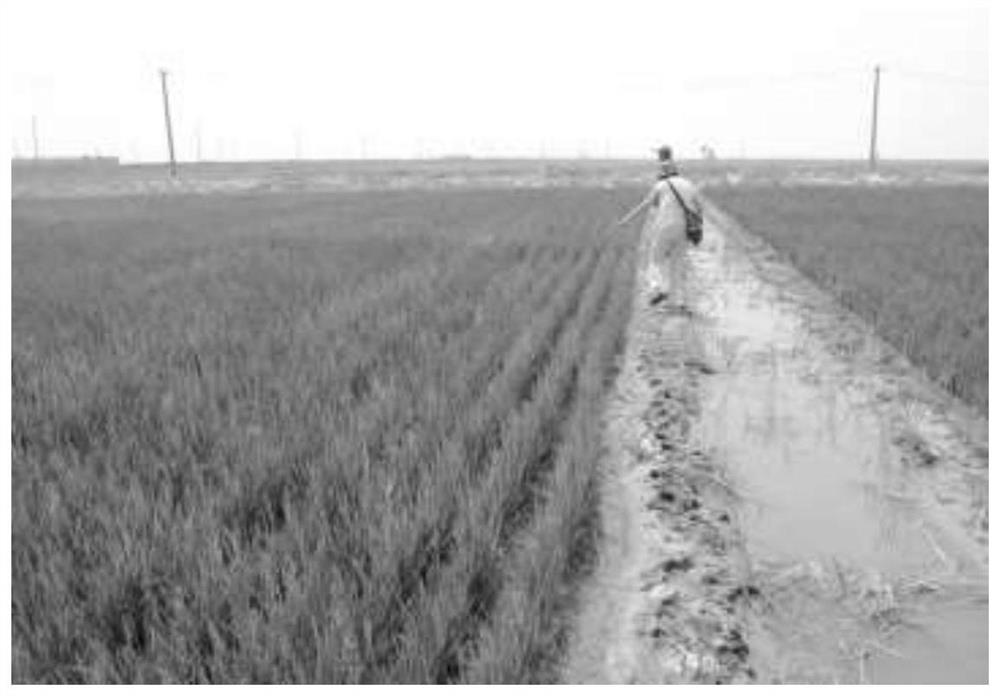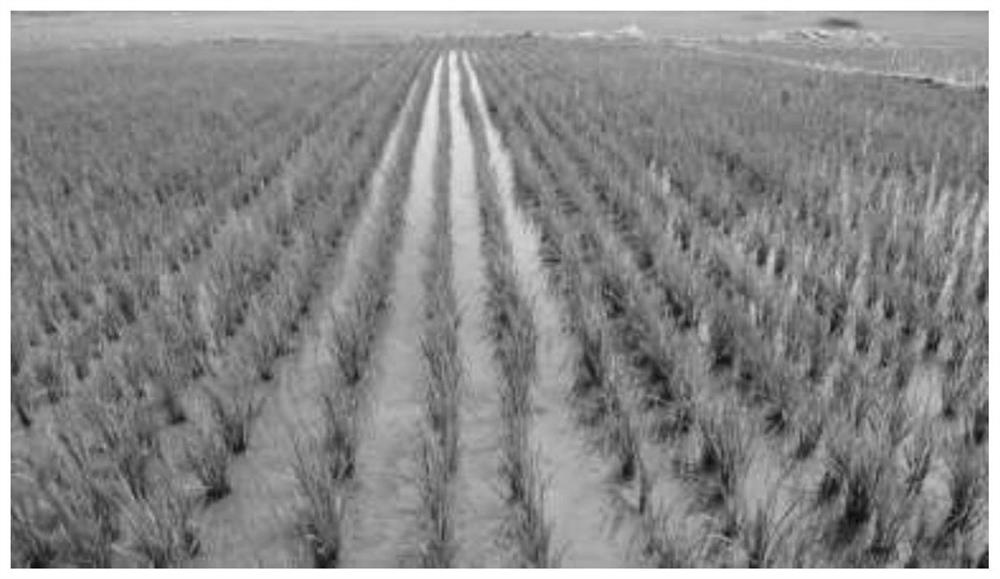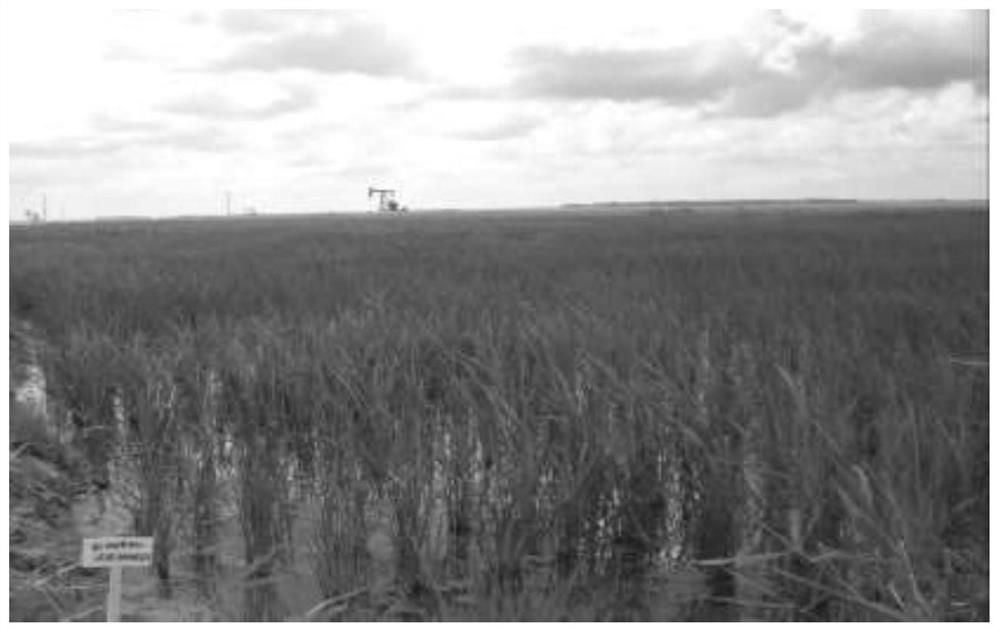Method for improving saline-alkali land by producing solid-liquid bio-organic fertilizer from slaughtering and breeding waste sewage and biogas residue from diseased and dead livestock and poultry
A bio-organic fertilizer and aquaculture waste technology is applied in the field of improving saline-alkali land with solid-liquid bio-organic fertilizer, which can solve the problems of excessive water consumption and prone to alkali return, and achieve the effect of improving the structure of aggregates.
- Summary
- Abstract
- Description
- Claims
- Application Information
AI Technical Summary
Problems solved by technology
Method used
Image
Examples
Embodiment 1
[0038] This example provides a method for improving saline-alkali land by using solid-liquid bio-organic fertilizer produced from slaughtering and breeding waste sewage and biogas residue from diseased and dead livestock and poultry. Bio-organic fertilizer is used as fertilizer and carried out in accordance with the following steps:
[0039] (1) Establish a grid management module: divide the saline-alkali land to be improved into grids, each grid size is 400m wide, and the length of each grid size can be extended until the terrain changes and it is not suitable for further extension. The 3-meter-wide working road is set up with drainage ditches according to the terrain. For the plots with an area of more than 10,000 mu of saline-alkali land to be improved, a reservoir is set at the lowest depression of the saline-alkali land to be improved for drainage.
[0040] (2) Straw returning to the field: After harvesting in autumn, before applying base fertilizer and improving soil f...
Embodiment 2
[0045] This embodiment provides a method for improving saline-alkali land by using solid-liquid bio-organic fertilizer produced from slaughtering and breeding waste sewage and biogas residue from sick and dead livestock and poultry. The difference between this method and Example 1 is: step (3) Apply 5m per mu of moderate saline-alkali land to be improved 3 ~10m 3 solid bio-organic fertilizer and the covering thickness is not less than 0.7 cm, and the liquid bio-organic fertilizer of 15kg to 80kg is applied to the surface of the moderate saline-alkali land to be improved per mu; The amount of fertilization per acre of mild saline-alkali land to be improved in step (4) of Example 1.
Embodiment 3
[0047] This example provides a method for improving saline-alkali land using solid-liquid bio-organic fertilizer produced from slaughtering and breeding waste sewage and biogas residue from sick and dead livestock and poultry. The difference between this method and Example 1 is: Apply 7m in severe saline-alkali land 3 ~20m 3 The solid bio-organic fertilizer and the covering thickness are not less than 1 centimeter, and the liquid bio-organic fertilizer of 20kg~100kg is applied to the ground surface of each mu of severe saline-alkali land to be improved; in step (4), the fertilization amount of each mu of severe saline-alkali land to be improved is the same as that of Example 1 In step (4), the amount of fertilizer applied per acre of mild saline-alkali land to be improved.
[0048] For illustrating the control effect of the inventive method, carried out following experiment:
[0049] Experiment 1. Corn planting experiment in severe saline-alkali land
[0050] 1. Experimenta...
PUM
 Login to View More
Login to View More Abstract
Description
Claims
Application Information
 Login to View More
Login to View More - R&D Engineer
- R&D Manager
- IP Professional
- Industry Leading Data Capabilities
- Powerful AI technology
- Patent DNA Extraction
Browse by: Latest US Patents, China's latest patents, Technical Efficacy Thesaurus, Application Domain, Technology Topic, Popular Technical Reports.
© 2024 PatSnap. All rights reserved.Legal|Privacy policy|Modern Slavery Act Transparency Statement|Sitemap|About US| Contact US: help@patsnap.com










